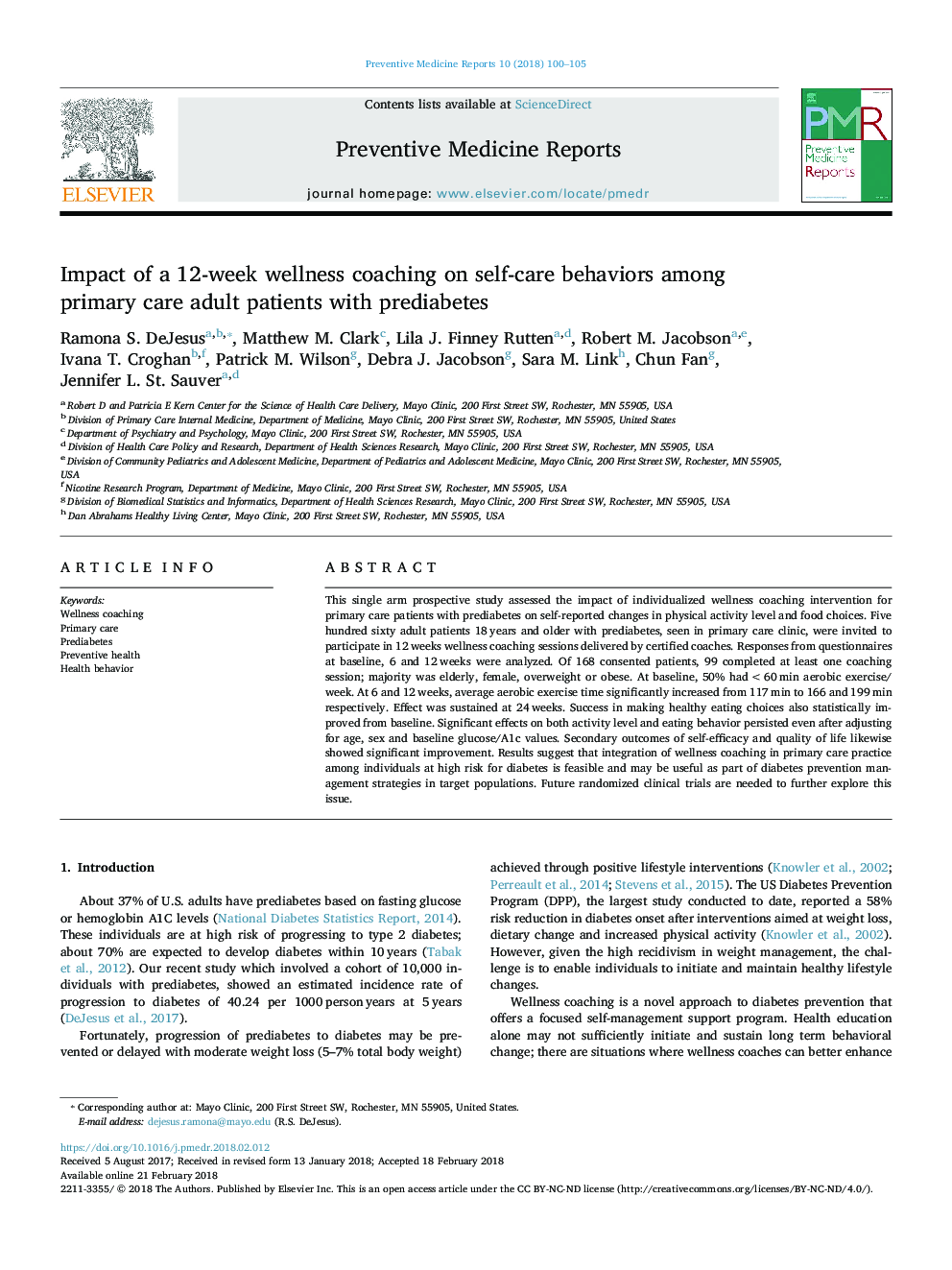| Article ID | Journal | Published Year | Pages | File Type |
|---|---|---|---|---|
| 8818565 | Preventive Medicine Reports | 2018 | 6 Pages |
Abstract
This single arm prospective study assessed the impact of individualized wellness coaching intervention for primary care patients with prediabetes on self-reported changes in physical activity level and food choices. Five hundred sixty adult patients 18â¯years and older with prediabetes, seen in primary care clinic, were invited to participate in 12â¯weeks wellness coaching sessions delivered by certified coaches. Responses from questionnaires at baseline, 6 and 12â¯weeks were analyzed. Of 168 consented patients, 99 completed at least one coaching session; majority was elderly, female, overweight or obese. At baseline, 50% had <60â¯min aerobic exercise/week. At 6 and 12â¯weeks, average aerobic exercise time significantly increased from 117â¯min to 166 and 199â¯min respectively. Effect was sustained at 24â¯weeks. Success in making healthy eating choices also statistically improved from baseline. Significant effects on both activity level and eating behavior persisted even after adjusting for age, sex and baseline glucose/A1c values. Secondary outcomes of self-efficacy and quality of life likewise showed significant improvement. Results suggest that integration of wellness coaching in primary care practice among individuals at high risk for diabetes is feasible and may be useful as part of diabetes prevention management strategies in target populations. Future randomized clinical trials are needed to further explore this issue.
Related Topics
Health Sciences
Medicine and Dentistry
Public Health and Health Policy
Authors
Ramona S. DeJesus, Matthew M. Clark, Lila J. Finney Rutten, Robert M. Jacobson, Ivana T. Croghan, Patrick M. Wilson, Debra J. Jacobson, Sara M. Link, Chun Fan, Jennifer L. St. Sauver,
